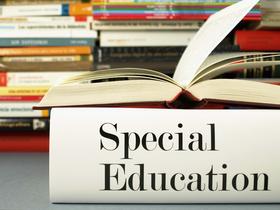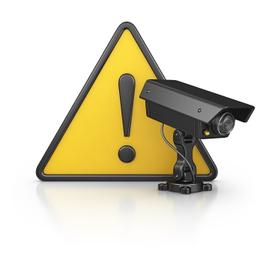Top Rankings
Shiawassee Regional ESD School District ranks among the top 20% of public school district in Michigan for:
Category
Attribute
Overall Rank
Highest overall rank (Top 20%)
Math Proficiency
Highest math proficiency (Top 20%)
Science Proficiency
Highest science proficiency (Top 5%)
Student Attention
Lowest student:teacher ratio (Top 1%)
For the 2025 school year, there are 2 public high schools serving 160 students in Shiawassee Regional ESD School District. This district's average high testing ranking is 9/10, which is in the top 20% of public high schools in Michigan.
ÎÛÎÛÂþ» High Schools in Shiawassee Regional ESD School District have an average math proficiency score of 47% (versus the Michigan public high school average of 30%), and reading proficiency score of 52% (versus the 48% statewide average).
ÎÛÎÛÂþ» High School in Shiawassee Regional ESD School District have a Graduation Rate of 50%, which is less than the Michigan average of 84%.
The school with highest graduation rate is Shiawassee Resd Student Learning Center West, with <50% graduation rate. Read more about public school graduation rate statistics in Michigan or national school graduation rate statistics.
Minority enrollment is 11% of the student body (majority Hispanic), which is less than the Michigan public high school average of 36% (majority Black).
Overview
This School District
This State (MI)
# Schools
2 Schools
1,342 Schools
# Students
160 Students
534,573 Students
# Teachers
25 Teachers
30,578 Teachers
Student : Teacher Ratio
8:1
8:1
Student By Grade
District Rank
Shiawassee Regional ESD School District, which is ranked within the top 30% of all 851 school districts in Michigan (based off of combined math and reading proficiency testing data) for the 2021-2022 school year.
The school district's graduation rate of 50% has stayed relatively flat over five school years.
Overall District Rank
#156 out of 866 school districts
(Top 20%)
(Top 20%)
Math Test Scores (% Proficient)
45-49%
34%
Reading/Language Arts Test Scores (% Proficient)
50-54%
45%
Science Test Scores (% Proficient)
60-69%
38%
Graduation Rate
<50%
81%
Students by Ethnicity:
Diversity Score
0.20
0.55
% American Indian
n/a
1%
% Asian
n/a
4%
% Hispanic
6%
9%
% Black
1%
17%
% White
89%
64%
% Hawaiian
n/a
n/a
% Two or more races
4%
5%
All Ethnic Groups
District Revenue and Spending
The revenue/student of $192,281 is higher than the state median of $18,510. The school district revenue/student has grown by 6% over four school years.
The school district's spending/student of $168,494 is higher than the state median of $17,693. The school district spending/student has grown by 6% over four school years.
Total Revenue
$31 MM
$25,476 MM
Spending
$27 MM
$24,351 MM
Revenue / Student
$192,281
$18,510
Spending / Student
$168,494
$17,693
Best Shiawassee Regional ESD School District ÎÛÎÛÂþ» High Schools (2025)
School
(Math and Reading Proficiency)
(Math and Reading Proficiency)
Location
Grades
Students
Rank: #11.
Shiawassee Resd Student Learning Center West
Special Education School
(Math: 45-49% | Reading: 50-54%)
Rank:
Rank:
8/
Top 30%10
2009 Corunna Ave
Owosso, MI 48867
(989) 743-3471
Owosso, MI 48867
(989) 743-3471
Grades: PK-12
| 160 students
Rank: n/an/a
Shiawassee Resd College And Career Readiness Center
Vocational School
201 E Washington Ave
Corunna, MI 48817
(989) 743-3471
Corunna, MI 48817
(989) 743-3471
Grades: 9-12
| n/a students
Recent Articles

Parents’ Guide to Special Education
Special education law is not easy to decipher, with several regulations that govern special education services for disabled students. In this article, learn about the core components of the laws, rights, and individual education plans that can help create the best public school environment for your child.

Surveillance Cameras: Violation of Rights or Improved Security?
A school district in Virginia has given the green light to schools that want to install surveillance cameras in common areas like cafeterias and hallways. We’ll look at whether this is a violation of student privacy or the best way to keep order in schools.

Teachers in 19 States Allowed to Physically Punish Students
As of 2014, nineteen states still allow corporal punishment – spanking and paddling the most common choices – in their public schools. However, some argue that not only are these punishments physically harmful, they also are disproportionately administered to students of color. As a result, House democrats have taken up the issue in a new bill that would ban all forms of corporal punishment nationwide.





